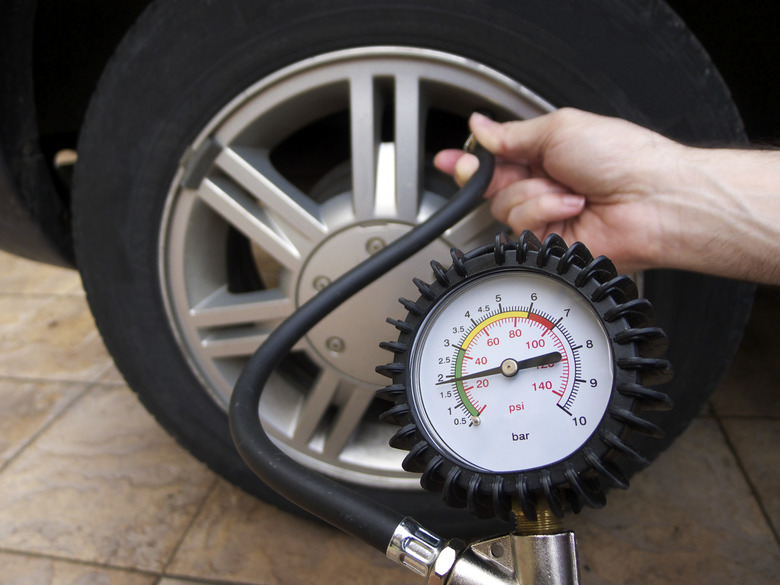What Is The Meaning Of PSI?
We may receive a commission on purchases made from links.
The acronym PSI is one with several meanings. For example, the PSI meaning in police work is police sub-inspector, which is a few ranks above constable and just below assistant police inspector. Meanwhile, there is more than one PSI meaning in the medical world. It can stand for patient safety indicator, pain sensitivity index, pediatric speech intelligibility, and much more. When pronounced as a word with a silent "p," PSI can even refer to psychic phenomena.
The PSI meaning most relevant to homeowners is as an abbreviation for pounds per square inch. It's a unit for water and air pressure and is used by plumbers, HVAC technicians, carpenters using compressors and air-powered tools, and auto mechanics, who take psi as meaning tire pressure. When used as an abbreviation for pounds per square inch, the letters usually aren't capitalized. Pounds per square inch (psi) is a good unit to understand because you often see it on gauges and in appliance owners' manuals.
Tip
As an acronym, PSI can stand for many things, but as an abbreviation, it refers to pounds per square inch, which is a unit for pressure.
PSI Explained as a Measure of Pressure
PSI Explained as a Measure of Pressure
Pounds per square inch is the unit of pressure in the imperial system of measurement, and physics tells us that pressure is defined as force per unit area. In the imperial system, pounds are units of both force and weight. This is one of the many confusing aspects of that system and a reason only two countries in the world besides the United States still use it.
Physics defines force as the impetus that causes a body to change its state of motion, but forces don't always cause movement. For example, a gas enclosed in a glass container exerts a force on the glass, but the glass doesn't move. A calculation of the pressure exerted on the glass is more useful than a calculation of the total force exerted on the entire container for many reasons, and pounds per square inch is one way to measure this pressure.
More Ways to Measure Pressure
More Ways to Measure Pressure
In the more universally used metric system, pressure has its own much smaller unit, the pascal (Pa), which is equal to 0.000145 psi. Turning this around, 1 psi = 6894.8 Pa. Pressure can also be measured in atmospheres, where 1 atmosphere is the air pressure at Earth's surface and is equal to 14.7 psi or 101325 Pa. Other units of pressure include the torr (0.02 psi) and the bar, which is almost the same as an atmosphere (1 bar = 14.5 psi).
Historically, scientists used a manometer to measure air pressure. It consists of a tray filled with mercury and a vertical vacuum-filled tube. As air pushes down on the tray, it forces mercury (Hg) into the tube, and the height that it rises (usually measured in millimeters) is a measure of air pressure. It takes 0.0193 psi of air pressure to make mercury rise in the tube by 1 mm, so 1 mm Hg is approximately equal to a torr. Turning things around, 1 psi = 51.7 mm Hg.
Measuring Pressure at Home and on the Road
Measuring Pressure at Home and on the Road
Many entries in the units of pressure list are used more often in lab settings than around the house, with the exception of pascals and pounds per square inch. In the United States, plumbers measure water pressure in psi, and homeowners can check their own water pressure with a gauge graduated in psi. Water heater temperature and pressure relief valves are also calibrated in psi.
HVAC technicians need to measure air pressure to ensure balanced airflow in buildings, and they make these measurements in pounds per square inch or pascals. Motorists needing to check their tire pressure use gauges calibrated in psi, and an ideal tire pressure is usually between 30 and 35 psi depending on the tire. If you're driving on tires with only 20 psi of air pressure, you need to get to a service station.
